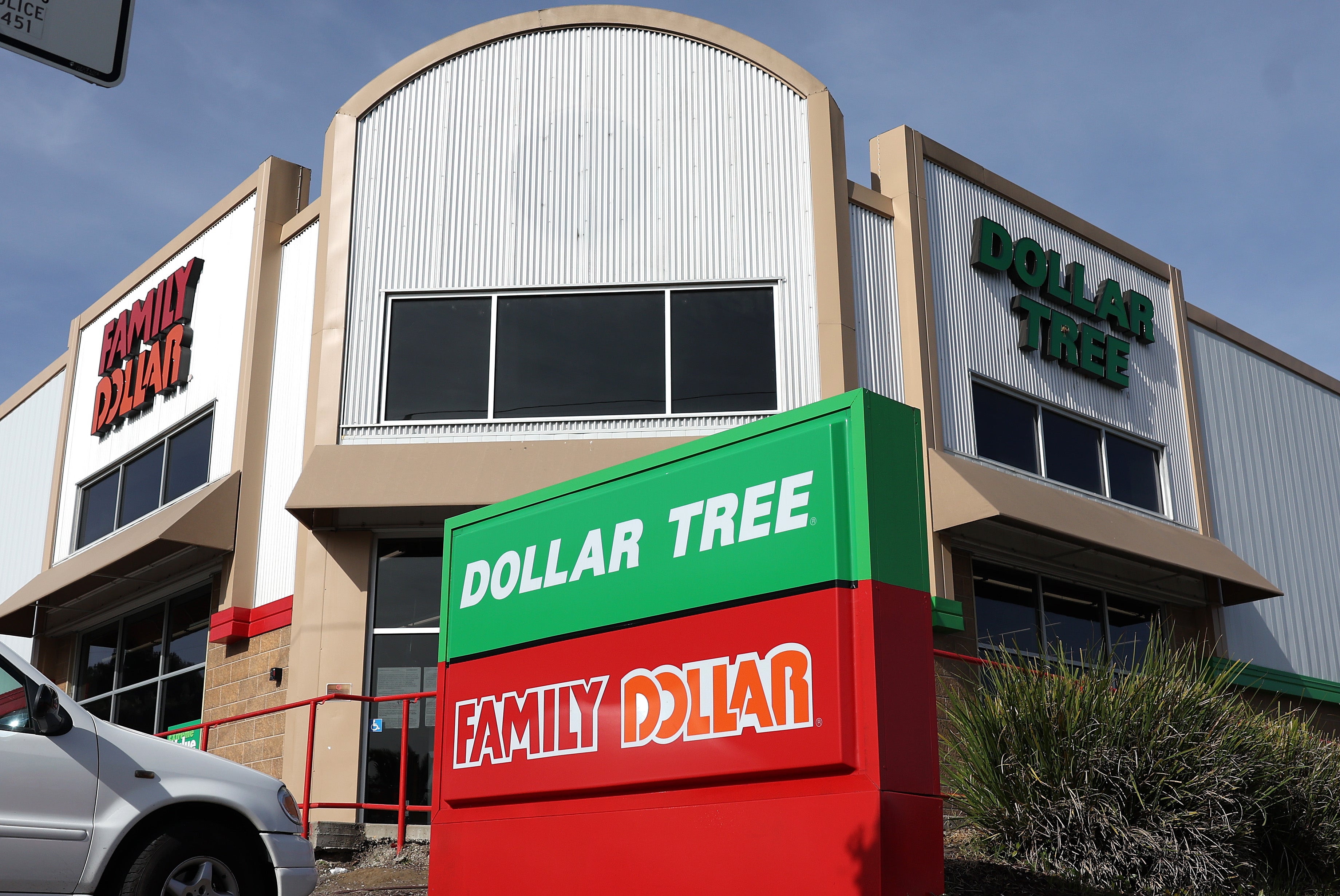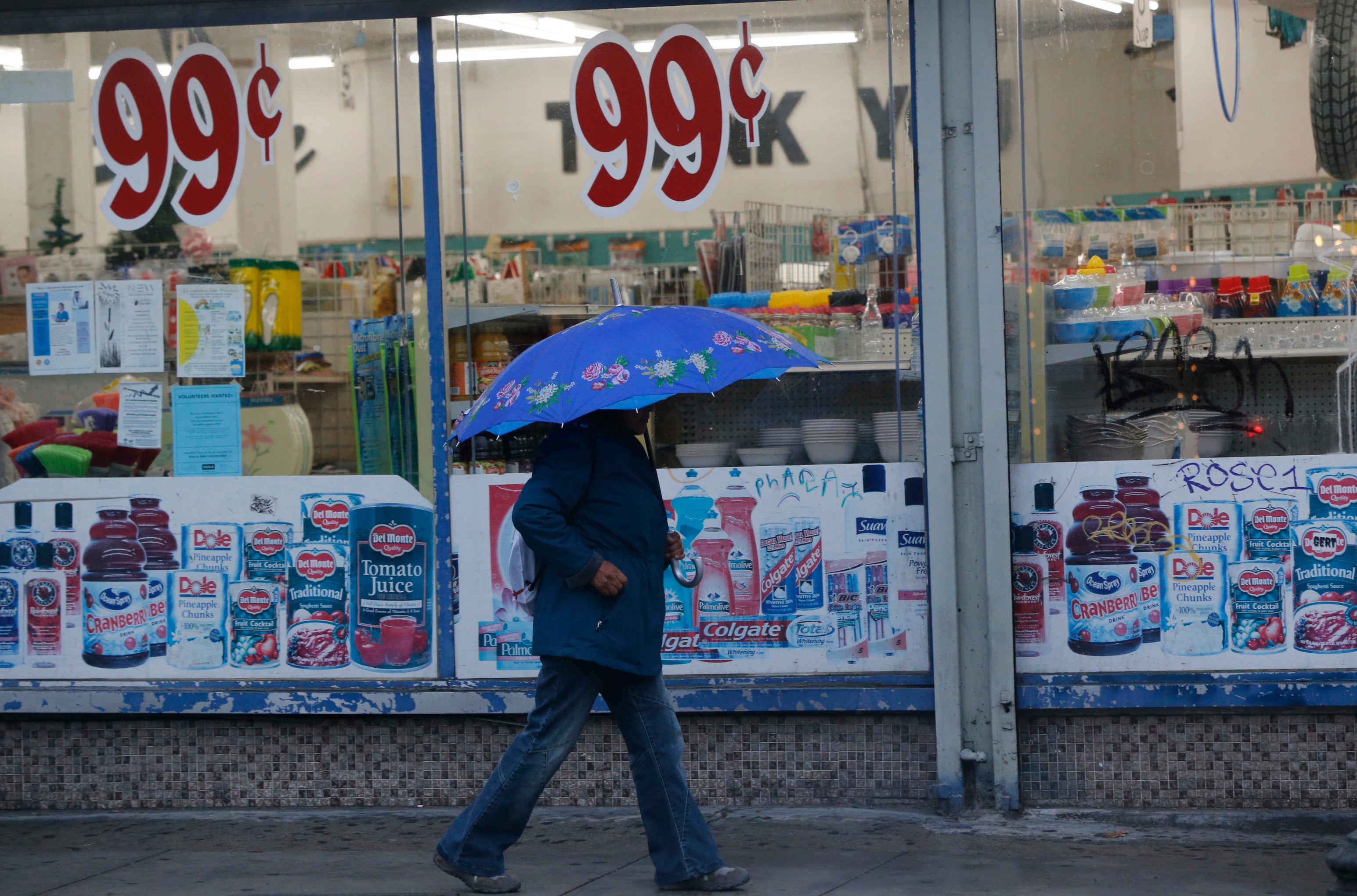Family Dollar may be sold as dollar store carnage continues
The rapid expansion of dollar stores across the US in recent years has been a retail phenomenon

Your support helps us to tell the story
From reproductive rights to climate change to Big Tech, The Independent is on the ground when the story is developing. Whether it's investigating the financials of Elon Musk's pro-Trump PAC or producing our latest documentary, 'The A Word', which shines a light on the American women fighting for reproductive rights, we know how important it is to parse out the facts from the messaging.
At such a critical moment in US history, we need reporters on the ground. Your donation allows us to keep sending journalists to speak to both sides of the story.
The Independent is trusted by Americans across the entire political spectrum. And unlike many other quality news outlets, we choose not to lock Americans out of our reporting and analysis with paywalls. We believe quality journalism should be available to everyone, paid for by those who can afford it.
Your support makes all the difference.Dollar Tree said Wednesday it is exploring the sale of its Family Dollar brand, just a few months after it announced plans to close more than 900 stores.
There are around 8,000 Family Dollar locations across the US, but the chain has struggled in recent years with rising inflation and a rapid growth strategy that was hard to maintain.
Dollar Tree purchased its rival for $8.5 billion in 2015, hoping to beat the competition by extending its footprint.
Family Dollar caters predominantly to low-income customers in urban areas, while Dollar Tree offers slightly more expensive items.
Burt Flickinger III, a retail expert, investor, and managing director of a retail consulting firm, Strategic Resource Group, said Family Dollar was likely a problem that was “too big to fix” for Dollar Tree.
“Dollar Tree is working hard to continue to win and compete effectively against [its rival] Dollar General, but to turn around several 1000 Family Dollar Stores at the same time is a lot more than the labors of Hercules being completed in a matter of days,” he told The Independent.
He added that the store had struggled with management issues and what he described as a “pandemic” of retail crime in recent years.
The potential sale comes at a turbulent time for the dollar store industry.
Dollar Tree announced in March that it would close 600 of its Family Dollar store locations this year and 370 more over the next several years as store leases expire. A further 30 Dollar Tree locations will also close, the company said.
In April, 99 Cents Only filed for bankruptcy and closed all of its 370 locations. Dollar Tree said last week it would purchase the 99 Cents Only brand and keep half of those locations open.
Rick Dreiling, chairman and chief executive officer at Dollar Tree, said the goal of the potential sale “is to position both the Dollar Tree and Family Dollar banners to progress further and faster, and to determine whether the exclusive attention of a dedicated team will benefit both.”
The company said in a statement it had “initiated a formal review of strategic alternatives” for Family Dollar, which could include “a potential sale, spin off or other disposition of the business.”

The rapid expansion of dollar stores across the US in recent years has been a retail phenomenon.
The 2008 recession sparked their exponential growth as families searched for ways to reduce their household budgets. The cheap, packaged food they offered met that need.
Between 2018 and 2021, around half of all retail stores that opened in the US were dollar stores, according to research by the University of Toronto. Today, there are more dollar stores than Walmarts, CVS, Walgreens, and Targets combined.
That has made competition between the giants fierce and put a premium on building as large a footprint as possible.
Dollar Tree, a Fortune 200 Company, operates more than 16,000 stores in the US and Canada.
Dollar stores aren’t the only retailers feeling the pinch.
Iconic northeast chain Stop & Shop is also shuttering an unknown number of stores. The chain is closing “select underperforming store locations” to “ensure the long-term health and future growth” of the company, a spokesperson for Stop & Shop said in a statement to The Independent.
A host of major retailers are also cutting prices in an effort to bring back customers who are tightening their belts due to inflation. Walgreens announced this week it would slash prices across the store, joining Walmart, Amazon and Target in doing the same.
Join our commenting forum
Join thought-provoking conversations, follow other Independent readers and see their replies
Comments